
Introducing: Eurasian Empires projectgroep
The Horizon programme 'Eurasian Empires: integration processes and identity formations' started September 1st 2014. The six PhD students and two Postdocs introduce themselves.
Lennart Bes
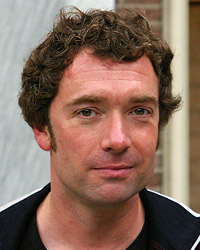 After studying Indology (with a focus on Indian history) at Leiden and living from playing alternative pop music for a couple of years, I found a job at the National Archives in The Hague. There I worked for a decade on the accessibility and preservation of the Dutch East India Company records kept in the Netherlands and India. Besides, I (co-) authored three archival guides to Dutch sources on South Asia dating from the years 1600-1825. Then came the opportunity to join the Eurasian Empires program. An old wish came true: writing a dissertation on early-modern South Indian court culture. The step from a secure government job to an uncertain academic life was thus easily made, the more so because the Eurasian Empires program aims at a comparative approach, in which eight researchers work closely together while each focusing on another empire.
After studying Indology (with a focus on Indian history) at Leiden and living from playing alternative pop music for a couple of years, I found a job at the National Archives in The Hague. There I worked for a decade on the accessibility and preservation of the Dutch East India Company records kept in the Netherlands and India. Besides, I (co-) authored three archival guides to Dutch sources on South Asia dating from the years 1600-1825. Then came the opportunity to join the Eurasian Empires program. An old wish came true: writing a dissertation on early-modern South Indian court culture. The step from a secure government job to an uncertain academic life was thus easily made, the more so because the Eurasian Empires program aims at a comparative approach, in which eight researchers work closely together while each focusing on another empire.
Employed at the Radboud University Nijmegen but for now based at Leiden as a guest researcher, I am studying the South Indian Empire of Vijayanagara and three of its successor states (Tanjavur, Ikkeri, and Ramnad). The main questions are what all these states had in common with regard to four related aspects of court politics (dynastic succession, balance of power, royal legitimation, and systems of honour and protocol), and which factors determined the extent to which Vijayanagara's legacy lived on in its successors. Sources used for this research include chronicles and inscriptions produced by all of the courts in question, as well as records created by the Portuguese and the Dutch during their presence in South India.
Marie Favereau-Doumenjou
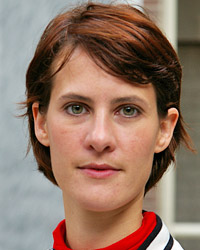 Born and raised in Paris, I graduated from the Université de La Sorbonne (Paris IV) in Historical Studies and Arabic Language. In 2000, I began my doctoral research on medieval Central Asia under the supervision of Prof. Ludvik Kalus (Paris IV) and Prof. Maurice Aymard (Maison des Sciences de l’Homme). I was also PhD-fellow at Università degli Studi di San Marino. My PhD focused on the study of the sources of the late Golden Horde (14th-15th centuries), the western part of the Mongol Empire, which stretched from the Ural Mountains to the Black Sea, and enjoyed a highly strategic location at the crossroads of Asia and Europe. My study demonstrated the existence of a sophisticated and administratively complex state, which synthesized practices drawn from the Uyghurs, the Chinese, the Mongols and diverse Turkic islamic groups settled in the Volga and Caspian regions.
Born and raised in Paris, I graduated from the Université de La Sorbonne (Paris IV) in Historical Studies and Arabic Language. In 2000, I began my doctoral research on medieval Central Asia under the supervision of Prof. Ludvik Kalus (Paris IV) and Prof. Maurice Aymard (Maison des Sciences de l’Homme). I was also PhD-fellow at Università degli Studi di San Marino. My PhD focused on the study of the sources of the late Golden Horde (14th-15th centuries), the western part of the Mongol Empire, which stretched from the Ural Mountains to the Black Sea, and enjoyed a highly strategic location at the crossroads of Asia and Europe. My study demonstrated the existence of a sophisticated and administratively complex state, which synthesized practices drawn from the Uyghurs, the Chinese, the Mongols and diverse Turkic islamic groups settled in the Volga and Caspian regions.
After completing my doctorate, in 2005, I became a member of the French Institute of Oriental Archaeology in Cairo. My main project was to explore the impact of the relationships between the Mamluks and the Chinggisids through the Arabic sources. The Golden Horde, as the first Muslim State of the Mongol Empire (from the late 1250s), played an essential role in the expansion of Islamic civilization. Indeed, it was the major source of military slaves recruited for the armies of the Mamluk Sultanate in Egypt and Syria. My recent research on the mechanism of this trade, in which Tatar, Greek, Turk, Italian, Arabic and Slavic merchants had a part, is giving us a better understanding of the mercantile and diplomatic connections in this area in the pre-modern period. I also participated in a program dedicated to the diplomacy in the ‘Dar al-islam’ and the exchanges of letters between Muslim sovereigns (13th -16th centuries). We investigated the question of the lack of archives in the Islamic world, which leads some historians to underrate the use of written archives in the Sultanates, and to deny their ability to produce a huge number of documents.
In 2009-2010, I had a Fulbright grant to attend the Institute for Advanced Study at Princeton as a visiting scholar. My research project regarded three essential features of the Golden Horde state structure: the cultural influences (Mongol, Chinese, Turk); the Slave Kipchak network; and the role of the Italian trading posts within the Golden Horde. My study on the transition (in terms of organization and control) from the first stage of the Mongol uluses to the successor states of the Empire allowed me to set the plan of a book including the edition and translation of Jochid chancellery documents issued between the 13th and 16th Centuries.
In September, I joined a new NWO Program as a Postdoctoral researcher at the Institute for History of Leiden University: the Eurasian Empires Project. Within the scope of our collective project, I intend to explore the diplomatic, economic and cultural ties between the Golden Horde and one of its main successor states, the Grand Duchy of Lithuania.
Willem Flinterman
 Mijn naam is Willem Flinterman. In 2004 ben ik begonnen met de BA Arabische taal en cultuur in Leiden. Een talenstudie brengt verschillende, interessante disciplines samen: taalkunde, literatuur en geschiedenis. Na mijn tweede studiejaar besloot ik om mij in te schrijven voor een tweede BA: Geschiedenis. Dat vond ik eigenlijk het interessantste onderdeel van mijn studie. Gedurende het bijvak ‘Wereldgeschiedenis’ raakte ik enthousiast over de mogelijkheid om locale geschiedenis en bronnen te bestuderen binnen een veel bredere, historische context. Na het afronden van beide BA’s ben ik een ResMA Middle Eastern Studies gaan doen, eveneens in Leiden. Ik heb mijn opleiding als Arabist voltooid en heb kunnen profiteren van de historische expertise van Prof. Petra Sijpesteijn.
Mijn naam is Willem Flinterman. In 2004 ben ik begonnen met de BA Arabische taal en cultuur in Leiden. Een talenstudie brengt verschillende, interessante disciplines samen: taalkunde, literatuur en geschiedenis. Na mijn tweede studiejaar besloot ik om mij in te schrijven voor een tweede BA: Geschiedenis. Dat vond ik eigenlijk het interessantste onderdeel van mijn studie. Gedurende het bijvak ‘Wereldgeschiedenis’ raakte ik enthousiast over de mogelijkheid om locale geschiedenis en bronnen te bestuderen binnen een veel bredere, historische context. Na het afronden van beide BA’s ben ik een ResMA Middle Eastern Studies gaan doen, eveneens in Leiden. Ik heb mijn opleiding als Arabist voltooid en heb kunnen profiteren van de historische expertise van Prof. Petra Sijpesteijn.
Tijdens mijn MA ben ik gefascineerd geraakt door het Mamlukse Sultanaat. Deze Midden-Oosterse dynastie van Turkse slaven, die in de periode tussen 1250 en 1517 vanuit Cairo een groot stuk van het Midden-Oosten regeerde, roept vele vragen op die door historici nog maar gedeeltelijk zijn beantwoord. Hoe zijn de Mamlukken in staat geweest om, na een turbulente periode, een solide rijk te stichten? Hoe konden zij, als Turken zonder enige traditionele autoriteit, hun macht legitimeren? Kan het voorbeeld van de Mamlukken worden vergeleken met dat van andere rijken, binnen de Islamitische Wereld of daarbuiten? Het is fantastische dat het Eurasian Empires program niet alleen gelegenheid biedt om deze vragen te stellen, maar ook om de antwoorden te vergelijken binnen de context van staatsvorming in ruimere zin.
Liesbeth Geevers
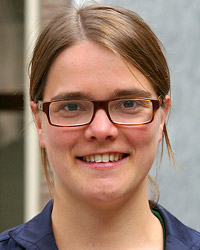 Ik begon mijn academische loopbaan in 1997 als student geschiedenis aan de Universiteit Leiden. Na het behalen van mijn doctoraal in de Algemene Geschiedenis in 2002 vertrok ik naar de Universiteit van Amsterdam om aan mijn dissertatie te werken. Deze ging over de contacten van de Nederlandse aristocratie (Willem van Oranje c.s.) met het Spaanse hof aan de vooravond van de Nederlandse Opstand (1559-1567). In het kader van dit onderzoek bezocht ik allerlei archieven in het zonnige Spanje, onder meer in het paleis van de huidige hertogin van Alva.
Ik begon mijn academische loopbaan in 1997 als student geschiedenis aan de Universiteit Leiden. Na het behalen van mijn doctoraal in de Algemene Geschiedenis in 2002 vertrok ik naar de Universiteit van Amsterdam om aan mijn dissertatie te werken. Deze ging over de contacten van de Nederlandse aristocratie (Willem van Oranje c.s.) met het Spaanse hof aan de vooravond van de Nederlandse Opstand (1559-1567). In het kader van dit onderzoek bezocht ik allerlei archieven in het zonnige Spanje, onder meer in het paleis van de huidige hertogin van Alva.
Na mijn promotie verliet ik Amsterdam om door te reizen naar de Universiteit Utrecht. Van 2008 tot 2011 was ik werkzaam als docent Politieke Geschiedenis. Ik liet de Nederlandse Opstand voor wat zij is en richtte me voornamelijk op de vroegmoderne diplomatieke praktijk – en dan vooral de fascinerende precedentieconflicten die vroegmoderne vorsten en hun representanten aan de lopende band uitvochten. Mijn interesse voor deze internationale prestigestrijd tussen staten en dynastieën bracht mij uiteindelijk weer terug naar Leiden, waar ik mij als postdoc binnen het Eurasian Empires programma bezig zal houden met de jongere leden van dynastieën binnen Euraziatische dynastieke rijken.
Barend Noordam
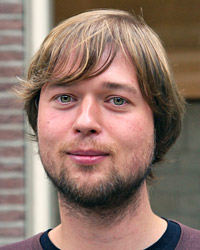 In 1999 ving ik mijn geschiedenisstudie aan in Utrecht, aanvankelijk nog zonder een duidelijk idee welke richting binnen de studie ik in wilde slaan. Medio 2001 veranderde dat enigszins, toen deelname als gaststudent aan een college over de Europese expansie in de Middeleeuwen in Leiden me deed beseffen dat een blik over de grenzen van Europa mij fascineerde. Een jaar later maakte ik dan ook een definitieve overstap naar de Leidse universiteit, waar ik in de daaropvolgende jaren mij richtte op een variëteit aan onderwerpen en tijdperken. Dit gebrek aan een duidelijke temporale focus werd gecompenseerd door een lichte thematische nadruk op militaire geschiedenis, wat toentertijd nog aangeboden werd als specialisatie. Inmiddels was, na geschiedenisvakken bij Koreaans en Japans gevolgd te hebben, ook mijn interesse in Oost Azië gewekt, en ik besloot in 2005 sinologie te studeren om mij in ieder geval te bekwamen in de grootste en oudste beschaving van de regio. Tijdens het afsluiten van de bachelorfase van sinologie werd ik getipt over een PhD beurs aan de universiteit van Heidelberg, die mij in staat stelde de overdracht van militaire technieken en ideeën tussen vroegmodern Europa en China te bestuderen. De lang ontbrekende temporele focus was er toen eindelijk: ik reken de vroegmoderne tijd nu tot ‘mijn’ periode. Een andere interesse die ik aan Heidelberg overgehouden heb, heeft betrekking op staatsvormingsprocessen en de rol van het militaire bedrijf hierin. Dat bracht mij ertoe om te solliciteren naar een positie binnen het Eurasian Empires program. Als deel van dat project zet ik nu mijn PhD onderzoek voort, zij het met een blikveld dat is verlegd naar de functie van het leger als incorporerende kracht en identiteitsdrager tijdens de late Ming dynastie (1368-1644) in China.
In 1999 ving ik mijn geschiedenisstudie aan in Utrecht, aanvankelijk nog zonder een duidelijk idee welke richting binnen de studie ik in wilde slaan. Medio 2001 veranderde dat enigszins, toen deelname als gaststudent aan een college over de Europese expansie in de Middeleeuwen in Leiden me deed beseffen dat een blik over de grenzen van Europa mij fascineerde. Een jaar later maakte ik dan ook een definitieve overstap naar de Leidse universiteit, waar ik in de daaropvolgende jaren mij richtte op een variëteit aan onderwerpen en tijdperken. Dit gebrek aan een duidelijke temporale focus werd gecompenseerd door een lichte thematische nadruk op militaire geschiedenis, wat toentertijd nog aangeboden werd als specialisatie. Inmiddels was, na geschiedenisvakken bij Koreaans en Japans gevolgd te hebben, ook mijn interesse in Oost Azië gewekt, en ik besloot in 2005 sinologie te studeren om mij in ieder geval te bekwamen in de grootste en oudste beschaving van de regio. Tijdens het afsluiten van de bachelorfase van sinologie werd ik getipt over een PhD beurs aan de universiteit van Heidelberg, die mij in staat stelde de overdracht van militaire technieken en ideeën tussen vroegmodern Europa en China te bestuderen. De lang ontbrekende temporele focus was er toen eindelijk: ik reken de vroegmoderne tijd nu tot ‘mijn’ periode. Een andere interesse die ik aan Heidelberg overgehouden heb, heeft betrekking op staatsvormingsprocessen en de rol van het militaire bedrijf hierin. Dat bracht mij ertoe om te solliciteren naar een positie binnen het Eurasian Empires program. Als deel van dat project zet ik nu mijn PhD onderzoek voort, zij het met een blikveld dat is verlegd naar de functie van het leger als incorporerende kracht en identiteitsdrager tijdens de late Ming dynastie (1368-1644) in China.
Elif Özgen
 I was born in Istanbul in 1981. At college, I majored in History at Bogazici University, which I enjoyed very much thanks to the brilliancy of most faculty members when teaching Ottoman, Byzantine, Japanese, and Islamic pasts. After obtaining my BA in History in 2004, I started the coursework of a History of Art and Architecture master’s program at Bogazici, which I left uncompleted while working as a film and music editor. In 2006, I got a position at Istanbul Bilgi University where my job was versatile. I coordinated Humanities courses, organized a lecture series (with Carlo Ginzburg, Jerrold Seigel, Mary Carruthers, John Law, and Dror Ze’evi) and coordinated a conference in memory of Faruk Tabak (organized by Resat Kasaba and Ihsan Bilgin). In 2007 I started an MA program in History, which I completed in 2010 with a thesis titled “Grand Vizier Koca Sinan Pasa and Factional Politics in the Court of Murad III”. In my MA thesis, I focused on the exercise and exchange of informal power in the Ottoman court during the last quarter of the sixteenth century through a close reading of contemporary chronicles and the sultan’s correspondence with the grand vizier. I specifically looked at the political uses of gossip, slander, and hearsay, and accounted for the instability in the office of grand vizier with the workings of the informal power networks at court.
I was born in Istanbul in 1981. At college, I majored in History at Bogazici University, which I enjoyed very much thanks to the brilliancy of most faculty members when teaching Ottoman, Byzantine, Japanese, and Islamic pasts. After obtaining my BA in History in 2004, I started the coursework of a History of Art and Architecture master’s program at Bogazici, which I left uncompleted while working as a film and music editor. In 2006, I got a position at Istanbul Bilgi University where my job was versatile. I coordinated Humanities courses, organized a lecture series (with Carlo Ginzburg, Jerrold Seigel, Mary Carruthers, John Law, and Dror Ze’evi) and coordinated a conference in memory of Faruk Tabak (organized by Resat Kasaba and Ihsan Bilgin). In 2007 I started an MA program in History, which I completed in 2010 with a thesis titled “Grand Vizier Koca Sinan Pasa and Factional Politics in the Court of Murad III”. In my MA thesis, I focused on the exercise and exchange of informal power in the Ottoman court during the last quarter of the sixteenth century through a close reading of contemporary chronicles and the sultan’s correspondence with the grand vizier. I specifically looked at the political uses of gossip, slander, and hearsay, and accounted for the instability in the office of grand vizier with the workings of the informal power networks at court.
In 2010, I started my PhD in Sabanci University, which was cut short with my joining the Eurasian Empires program at Leiden University’s Institute for History recently. Yet, I find one continuity to be stabilizing, that is, my adviser at Sabanci, Professor Metin Kunt, will continue to direct my research project, titled “Crisis and Transformation of the Ottoman Ruling Class 1574-1617.” While I focused on informal power before, now I am more interested in pursuing the institutional, formal and legal constraints on power and factionalism. In order to legally and institutionally contextualize grace and disgrace, I will be studying investigations of embezzlement cases at court and the jurisprudential rulings ( fatwas) the grand vizier and/or the sultan sought for the persecution of a member of the court. I will also conduct prosopographical research on the appointments of certain office holders, such as the grand vizier, viziers, the chief ( agha) of the janissaries, and the chief jurisconsult ( seyhu’l-islam), and the chief-justices ( kadi-asker). With my findings I hope to be able to compare the fortunes of two legally distinct groups within the Ottoman court —the sultan’s servants/slaves ( kullari, i.e. members of the military-administrative or financial bureaucracy) and the sultan’s prayer-sayers ( duaciyan, i.e. members of the ulama)— in terms of grace/disgrace, tenures, and endowed and private properties.
Kim Ragetli
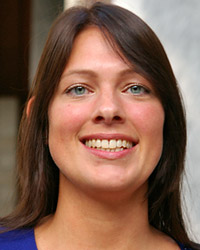 My name is Kim Ragetli and I started my academic studies at the University of Amsterdam, the city where I was born and raised. In 2008 I graduated cum laude with a Bachelor degree in Art History and a minor in Medieval History and Culture. My interest in the Middle Ages made me choose a broader, interdisciplinary Research Master at Utrecht University, entitled Medieval Studies, from which I graduated cum laude in 2010.
My name is Kim Ragetli and I started my academic studies at the University of Amsterdam, the city where I was born and raised. In 2008 I graduated cum laude with a Bachelor degree in Art History and a minor in Medieval History and Culture. My interest in the Middle Ages made me choose a broader, interdisciplinary Research Master at Utrecht University, entitled Medieval Studies, from which I graduated cum laude in 2010.
During my Research Master I focussed on two strands of research; namely manuscript studies and the study of medieval commemoration practices and memorial culture, also called memoriaresearch. After an internship as a student with the Medieval Memoria Online (MeMO) project, I worked as a research assistant at the MeMO project under the supervision of dr. Truus van Bueren at Utrecht University.
Since 2009 I have also been employed with prof. dr. Frits van Oostrom. As a research assistant I carried out illustration and bibliographical research as well as research on specific issues relevant for Van Oostrom’s forthcoming book on fourteenth-century Dutch literature and culture.
My Master’s thesis combined my two main interests as it dealt with the manuscript patronage, gift giving and memoria of Margaret of York (1446-1503). This study forms the basis for my PhD project in which I will focus on the cultural politics of women at the Burgundian court (ca. 1380-1530). The main objective is to better define the roles of Burgundian-Habsburg duchesses in cultural politics by studying their patronage and gift giving. And by implication the aim is also to analyse how the texts and artefacts were expressions of, and instruments in, the cultural politics of women. The outcomes of the research will offer more acute knowledge of these women’s personalities and their positions at the court – something already achieved for the Burgundian dukes.
Hans Voeten
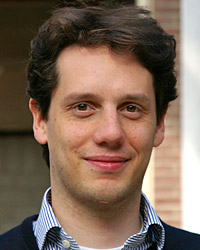 Na met veel genoegen Geschiedenis en Ruslandkunde aan de Universiteit Leiden te hebben gestudeerd, ben ik op 1 september 2011 begonnen als promovendus in het door NWO gefinancierde project Eurasian Empires. Omdat ik ben aangesteld door de UvA, zal ik vanaf mijn tweede onderzoeksjaar werkzaam zijn in Amsterdam. Tot die tijd zal ik samen met de andere aio’s en postdocs van het project te vinden zijn in ons prachtige pand aan het Leidse Rapenburg.
Na met veel genoegen Geschiedenis en Ruslandkunde aan de Universiteit Leiden te hebben gestudeerd, ben ik op 1 september 2011 begonnen als promovendus in het door NWO gefinancierde project Eurasian Empires. Omdat ik ben aangesteld door de UvA, zal ik vanaf mijn tweede onderzoeksjaar werkzaam zijn in Amsterdam. Tot die tijd zal ik samen met de andere aio’s en postdocs van het project te vinden zijn in ons prachtige pand aan het Leidse Rapenburg.
In mijn onderzoek bestudeer ik de verschillende strategieën die Ruslands vroegmoderne leiders gebruikten om Tataarse elites, afkomstig uit de door de Russen veroverde Tataarse kanaten, aan zich te binden. Op deze wijze wil ik laten zien hoe de Russische heersers er tot aan het begin van de 20ste eeuw in slaagden hun sterk versnipperde, multinationale rijk bijeen te houden.
Sinds het begin van mijn studies ben ik geïnteresseerd geweest in Ruslands expansiegeschiedenis en de positie van de niet-Russische volkeren in het Russische rijk. Voor mijn afstudeerscriptie heb ik onderzoek gedaan naar de Russische kolonisatie van het Siberische Altajgebied. Verschillende keren ben ik afgereisd naar Rusland om bronnenmateriaal te verzamelen. Daarnaast heb colleges gevolgd aan de universiteiten van Moskou, Odessa, Sint-Petersburg en Kazan.
Ook de komende jaren zal ik regelmatig in Rusland verblijven. In het Moskouse Staatsarchief voor Oude Akten zal ik 16de en 17de-eeuwse genealogische, militaire en diplomatieke boeken bestuderen van het Moskovische hof. Verder ben ik druk bezig mij het Tataars, een Turkse taal, eigen te maken. Zo zal ik tijdens mijn onderzoek niet uitsluitend afhankelijk zijn van Russische documenten, maar zal ik - voor een evenwichtiger beeld - ook Tataarse bronnen raadplegen.
